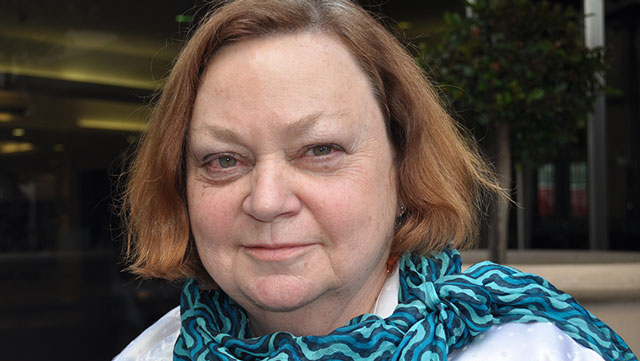
There is a long list of issues newly appointed communications minister Yunus Carrim needs to address with urgency if South Africa is to become the information and communications technology (ICT) leader on the continent, and create the jobs South Africa needs to eradicate poverty and unemployment.
I will request a meeting with minister Carrim to raise the following outstanding issues, which were bungled due to the poor performance of former minister Dina Pule:
— Take action on the future of director-general Rosey Sekese. She was placed on special leave, but worked from home, after she was found to have misled parliament about her performance agreement with the previous minister. Pule was due to report to the portfolio committee last month on how she would resolve the matter but failed to do so before parliament went into recess. Until the DG’s post is appropriately filled and functioning the department will continue to flounder.
— Thoroughly evaluate the skills of the deputy directors-general, special advisers and chief directors in the department. This will determine their suitability to direct the best possible policy development and legislative framework for South Africa’s dynamic ICT industry so it can become a leading competitor in international markets.
— Unblock the hiatus that fell on the set-top box manufacturing tender process when Pule announced in May that she was revising the policy. Despite a brief meeting with the tendering companies last month they have no clarity on whether the specifications for the boxes will be changed and whether the companies need to re-tender. Despite the interruption in the process the former minister was maintaining — as recently as a fortnight ago — that set-top boxes would be on the market by year-end.
— Fast-track the allocation of high-speed spectrum for wireless broadband services. Highly sought after spectrum in the 2,6GHz and 3,5GHz bands remains unavailable after it has been back and forth and mired in criticism for some years. Our Internet response times will continue to lag Africa’s leading ICT nations and our trading partners until we free up appropriate spectrum.
— Withdraw the Independent Communications Authority of South Africa (Icasa) and Electronic Communications Act (ECA) Amendment Bills that were tabled in June for possible promulgation before this parliament rises in March 2014. They contain contentious amendments and need a thorough public participation process and revision before they can be debated in the portfolio committee. There is insufficient time to do this.
— Study the section on information and communications infrastructure in the national development plan to gain a clear understanding of the communications ecosystem. Communications in South Africa needs to be able to support the economy, become globally competitive, grow employment opportunities and enable all spheres of government to more efficiently interact with people and deliver services throughout the country.
— Fast-track the acceptance of a comprehensive and coherent broadband policy and roll-out plan based on the significant input gathered in a public participation process hosted by national treasury last July. Despite input from the South African ICT industry and a trip by communication department officials to Australia last year, the minister was apparently keen to engage the Chinese government to help formulate the future of broadband in South Africa.
— Vigorously pursue the transition to digital terrestrial broadcasting. This will help bridge the digital divide and make a significant amount of spectrum available to multiple service providers to offer localised Internet and communication services, as well as high-quality radio and television broadcasts across South Africa. Digital migration’s attention has been skewed towards digitising the SABC’s television content but digital broadcasting’s advantage to all South Africans is much wider and significant than television. Minister Carrim must also re-evaluate the strategy for subsidising, financing, installing and supporting set-top boxes to poorer South Africans.
— Take a firm grip on the executive management of the SABC to ensure that it meets all the criteria laid down by national treasury in terms of the loan guarantee underpinning its turnaround strategy. In particular, the overstaffed SABC must complete the independent skills audit that will identify surplus or inappropriately skilled staff and, if necessary, the corporation’s downsizing must be managed without being held to ransom by trades unions.
— Ensure that the SABC appoints appropriately qualified and experienced people without political affiliations or obligations to all posts, in particular those currently staffed in an acting capacity. The SABC serves the education, information and entertainment needs of all South Africans. If it is to regain credibility and lost listeners and viewers, it must be professionally managed by people committed to quality and impartial broadcasting.
I welcome Carrim to his post and wish him well in his task of breathing focus and energy into a department that prevaricated over key issues for almost 20 years.
The DA believes South Africa has the skills and innovative talent in the industry to become competitive players and that South Africa need the infrastructure and enabling legislation to free up this creative energy.
- Marian Shinn is a DA MP and spokesman on communications




